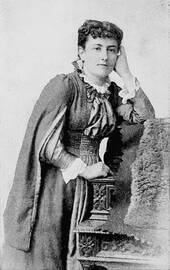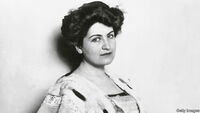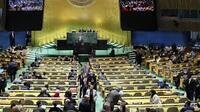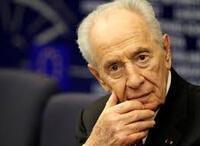Arnon Grunberg's Blog, page 2
October 5, 2025
Agreements
 Paper
PaperOn elastic materials – Zvi Bar'el in Haaretz:
‘It is difficult to predict how the road to an Israel-Hamas cease-fire, laden with challenges, will be traversed by both sides. The technical arrangements required to carry out the first phase require more negotiations, which began on Friday in Egypt, and it is difficult to predict how the talks will end.
The plan's main stage, the transfer of power in Gaza to an external administrative body, which may rest on a multinational force, will require many more complex agreements before it can be implemented. For now, this body only exists on paper.’
(…)
‘But Trump has already brought forth some powerful tectonic shifts. By adopting the positions of the leading Arab states, headed by Saudi Arabia, Qatar and Egypt, he has given them bargaining power that surpasses Israel's.
Understanding Israel's security needs and its willingness to open the gates of hell to destroy Hamas has lost its primacy in favor of the Arab countries' interests. Trump has already begun to interpret Israel's reasons for continuing the war as political needs that should not oblige or interest the American administration.’
(…)
‘Instead of formulating a "letter of guarantees" or making airy statements about a future end to the war, Trump ended the war himself, thus scrubbing any need to provide guarantees.
It's not yet clear whether Trump's order to stop the shooting was coordinated in advance with the Arab leaders or Turkish President Recep Tayyip Erdoğan, whose differences in the final stages of the negotiations intensified, and who even took credit for Trump's decision, thus paving the way for Hamas' adoption of the plan. But its diplomatic result is already substantial, and its impact is far wider than Gaza's borders.’
(…)
‘On the surface, Trump's plan offers a comprehensive outline that includes the release of the hostages and the Palestinian prisoners, along with a Gaza administration plan. The president's cease-fire proposal also neutralizes Hamas and establishes a vague path for establishing a Palestinian state.
In practice, these are two independent plans. The release of the hostages and the entire first stage are not dependent on the establishment of an Arab or Palestinian administration for Gaza or implementation of the Blair plan and establishment of a "provisional authority to administer Gaza".’
(…)
‘Hamas is expected to try and leverage Trump's decision to demand that Israel hold its fire and the Arab states' support of his plan to demand amendments that will secure its place. Israel may then discover that the big, clumsy Trump is made of elastic materials that allow him spectacular flexibility.’
Read the article here.
Israel lost the war. It became a pariah, and it will take some time to end the pariah-status.
By the way, losing is not always a bad thing. Winning a war can be deadly, see: zu Tode siegen.
Ending the war and returning the hostages is a good thing. Trump can take credit for this.
As was argued many times before, the Gazans were waiting for Trump and the Israelis also. European countries are merely extras.
Phase 2 might be Oslo, or not even Oslo. Trump is made of elastic materials indeed, which is a very polite way of saying that the US under Trump has become rather untrustworthy.
But a true empire will never become a pariah. The servants will please their master with all their minds and bodies.
After the Nobel prize, if not this year next year, Trump will be distracted by other things. Other countries.
Hamas won’t disappear.
As to peace, let's wait also for Russia and Ukraine.
The consequences of all this for Jewish people outside Israel will be discussed another time.
If the multinational force will come to Gaza, I doubt it, it will be at best UNIFIL all over again. More probably, it will be an open invitation to more bloodshed, corruption, prostitution et cetera.
But as Malaparte noted already in 43 in Naples: freedom is made of corruption, prostitution and some killing in between.
October 3, 2025
Figurative
 Outspoken
OutspokenOn Schreiner – Lyndall Gordon in LRB in 1980:
“It is astonishing that since Olive Schreiner died in 1920 there have been six biographies. Why should the life of a woman writing from remote farms and railway stoppings in South Africa between the 1870s and the First World War attract this attention? The new Olive Schreiner has been commissioned with the renewed interest in the feminist heroine of The Story of an African Farm (1883), and this approach to Olive Schreiner, which places her as a polemicist rather than a novelist, may be the most durable basis for her fame.
In one of her letters Schreiner predicted that potential biographers would never understand her horror of falsity.”
(…)
“Olive Schreiner was born in 1855 at Wittebergen, her parents’ mission station on what was then the Cape border. Her first two novels were completed in her early twenties while she earned her living as a governess on farms in the Cradock region of the Eastern Cape. She wrote Undine in a lean-to room which leaked so badly that she sometimes sat under an umbrella – hardly the cure for her crippling asthma. In 1880 she was revising the manuscript of the African Farm each morning before dawn, wretchedly unsure of herself – she once felt like throwing it in the farm dam – but when she took the book to London soon afterwards, it had a wide success and the young author was swept up in freethinking, socialist and Utopian circles.”
(…)
“All her words were designed to convert: Englishmen in their relation to Boers, men towards women, women towards prostitutes. She had the vehemence of a long line of Nonconformist preachers behind her, as well as great powers of sympathy. But her force came mainly, I think, from a rare indivisibility of mind and action. She spoke for causes when they were unpopular: for disfranchised blacks in 1908, when white groups were combining to frame the segregationalist constitution of South Africa. She refused to exclude black women from the Women’s Enfranchisement League, with some surprise that English suffragettes should be as indifferent as their colonial counterparts.”
(…)
“Her feminism was linked with an outspoken pacifism: she hoped that, in time, women would outlaw war because women ‘know the cost of flesh’, because ‘men’s bodies are our women’s works of art.’ Her feminism is expressed more compellingly, to my mind, in the lesser-known Dreams (1890) than in the African Farm. Her visionary mind and Biblical cadences were better suited to brief parables than long novels. Her brilliant parable of emancipation, ‘Three Dreams in a Desert’, was read aloud by suffragettes in Holloway prison. Constance Lytton said that it seemed not at all figurative: it was more ‘like an ABC railway guide to our journey’.”
(…)
“Olive Schreiner’s declaration that an independent, passionate, intelligent and virtuous woman could not easily expect to find an appropriate mate is not ‘neurotic’: it is common sense. She reminds me of Isabel Archer turning down the eligible Lord Warburton, when, in 1886, she refused Donkin with the words: ‘I must be free, you know, I must be free.’”
(…)
“The Puritans who migrated to America at the same time had to stretch their fancy to identify New England with the landscape of Exodus, but the South African interior was receptive to a very literal re-enactment of religious dreams. With all this there was an affinity in Olive Schreiner.”
(…)
“This biography, which is best at straight-forward political and historical narrative, gives an interesting account of Schreiner’s public advocacy of the Boer cause between 1891 and 1900. She described Boer psychology in terms of a 17th-century Calvinism which, encysted in the Taal (as their dialect was known before it established itself as Afrikaans), remained unaffected by the 18th century’s awakening to reason, tolerance and fraternity. But if their linguistic isolation cut them off from enlightenment, it also left them untouched by the degradations of commerce.”
(…)
“The Letters of Olive Schreiner is perhaps her best work; it is also a marvellous biographic source, for, during the productive periods of her life, she lived in remote places and depended on letters to explain herself and her setting to a large number of friends. She had the knack of intimacy, and reveals herself with dazzling directness and warmth.”
Read the article here.
For all independent, passionate, intelligent and virtuous creatures it’s not easy to find a mate. I’m not sure how the dolphins do it. Perhaps they complain also.
De Boers, no enlightenment, but also nu curses of commerce. Poverty and darkness, that’s seems to be the true Calvinistic spirit.
And South Africa as the true promised country, the landscape of Exodus can be found in the Karoo.
Zion is not in Utah, nor in Jerusalem but north of Cape Town.
We should have known this earlier.
October 2, 2025
Comments
 Opera
OperaOn the most legendary widow of the twentieth century – Alex Ross in The New Yorker:
‘The first challenge is deciding what to call her. She is encircled by famous surnames—men jousting over her identity. A lustrous scion of fin-de-siècle Vienna, she was born Alma Maria Schindler, the daughter of the operetta singer Anna Bergen and the landscape painter Emil Schindler. She hoped to make her way as a composer, but that dream ended when, in 1902, at the age of twenty-two, she married the musical titan Gustav Mahler. After Mahler’s death, in 1911, she had an affair with the artist Oskar Kokoschka, then was briefly married to the Bauhaus architect Walter Gropius. Her final husband was the writer Franz Werfel, whom she followed into exile, first in France and then in the United States, where she settled in Los Angeles. She lived until 1964, the most legendary widow of the twentieth century. Those who write about her—there have been eight biographies and half a dozen novels—tend to refer to her as Alma. This has the unfortunate effect of making her sound like a young girl in the company of grown men. Better to call her by the name under which she is buried: Mahler-Werfel.’
(…)
‘Mahler-Werfel was described as an incorrigible antisemite who enslaved Jewish men and drove them to early graves. According to one Mahler enthusiast, she was a “vain, repulsive, brazen creature.” Hilmes quotes a few ostensibly positive comments as well, although the praise is faint: Erich Maria Remarque dubs her a “wild, blond wench, violent, boozing.” In the end, the biographer categorizes his subject as a “classic hysterical woman.”’
(…)
‘Rehabilitation can go only so far. Casting Mahler-Werfel purely as a victim minimizes the power she wielded, particularly in her relations with Jews. At various points in her life, she was both oppressed and oppressor. We are confronted by a personality of maddening complexity—no less complex than that of any of the august men around her. At the age of eighteen, she wrote of her desire to accomplish a “great deed,” in the form of a “really good opera, which no woman has yet done.”’
(…)
‘The most detailed entries cover the years 1898 to 1902, when she was coming of age in Vienna. Turning the pages of the journals, which have been published complete in German and abridged in English, you see items typical of a vivacious young person: holidays are celebrated, faces sketched, vacation postcards pasted in, crushes confessed. (Her first kiss was with Gustav Klimt.) There are also signs of intellectual ambition. The first volume is emblazoned with a paraphrase of Kant’s categorical imperative: “Always act as if the maxims of your will could become the principle of a universal law.” Several pages are given over to excerpts from Nietzsche’s “On the Genealogy of Morals.” Wagner performances elicit ecstatic responses. Leading musicians are briskly assessed: Mahler is “a genius through and through,” Strauss a “genius pig.” Such pronouncements were to be expected from young men, less so from young women. She asks a teacher, “Why are boys taught to think and girls not?”’
(…)
‘Mahler-Werfel’s sterner critics scoff at the idea. The Mahler biographer Jens Malte Fischer grumbles that only an “embittered feminist dogma” would place her music on the level of Mahler’s. But no one is claiming that. Instead, the case of Mahler-Werfel dramatizes how opportunity, environment, and other contingencies shape artistic careers. Rode-Breymann draws a useful comparison to Alban Berg, whose sensuous, amorphous early work resembles Mahler-Werfel’s. Berg’s youthful songs offer few hints of “Wozzeck,” “Lulu,” and the Violin Concerto. But he had the chance to develop, with Schoenberg as his domineering guide. Zemlinsky contemplated sending Mahler-Werfel to study with Schoenberg, who possibly could have molded her as he molded Berg. When Schoenberg later studied her songs, he wrote to her, “You really have a great deal of talent.”’
(…)
‘The essential problem, as Mahler sees it, is a practical one: if his wife finds herself in the mood to compose, she will be unable to attend to his needs. He writes, “From now on, you have only one profession: to make me happy! ” Further, Mahler mocks the idea that a young woman could claim to possess a creative identity: “What do you imagine individuality to consist of? Do you consider yourself an individual?”’
(…)
‘The marriage was charged, combustible, and by no means one-sided. At first, Mahler-Werfel found herself trapped in the monastic world of a man who was always “striving in the infinite.” She wrote in her diary, “I feel as if my wings have been clipped.” She executed not only domestic tasks but also professional ones: copying out her husband’s scores, managing his finances, mitigating noise disturbances. Still, she asserted herself and began to influence the trajectory of Mahler’s career. It was through her that Mahler encountered the Secessionist painter Alfred Roller, who, in 1903, created a duskily evocative staging of Wagner’s “Tristan und Isolde” at the Court Opera—a landmark in operatic history. She introduced Mahler to Schoenberg and other radical youths. And she responded avidly to the abstract, proto-modernistic language of Mahler’s Sixth and Seventh Symphonies, which remained her favorites. It might be argued that she counterbalanced her husband’s tendency toward bombastic naïveté.’
(…)
‘Gropius then decided to confront Mahler in person, essentially demanding the release of his wife. Mahler handled this melodrama with remarkable composure; apparently, the two men digressed into a discussion of the brokenness of modern art. Mahler-Werfel was left to choose the man she wanted. She decided to have it both ways, remaining at Mahler’s side while secretly continuing the affair with Gropius.’
(…)
‘Later that year, Mahler-Werfel had a fling with the biologist Paul Kammerer, for whom she briefly worked as a lab assistant, overseeing a colony of praying mantises. When the relationship didn’t pan out, Kammerer threatened to shoot himself at Mahler’s grave. Hysteria was in the air, and it did not emanate from Mahler-Werfel.’
(…)
‘Kokoschka’s behavior justified her fears. He lurked outside her house and monitored her visitors. In a letter, he imagined “scraping from your brain with a knife every single one of those alien ideas that run counter to me.” Like Gropius, he resented her loyalty to Mahler, accusing her of performing a “dance of death” with a “man who was alien to you.” He tried to overcome her resistance to marrying him by prematurely publishing a wedding announcement. When, after a succession of such incidents, Mahler-Werfel backed away, Kokoschka’s mania only escalated. Notoriously, he commissioned a life-size doll of his love, which he paraded about, mutilated, and left in his garden, supposedly attracting the attention of the police. He further ventilated his frustration in his play “Orpheus and Eurydice,” in which Orpheus goes to the underworld, retrieves Eurydice from Hades (Mahler), and then stabs her to death. None of this stopped Mahler-Werfel from hailing Kokoschka as a genius.’
(…)
‘ Furthermore, Gropius turned out to be, in Mahler-Werfel’s eyes, a Spiessbürger, a provincial philistine. Her daughter Anna acidly commented, “She was married to an Aryan once. She was so bored.”’
(…)
‘What might be called the slut-shaming of Mahler-Werfel reached its peak after her death, when the songwriter Tom Lehrer wrote a sniggering ballad called “Alma”: “Her lovers were many and varied / From the day she began her beguine / There were three famous ones whom she married / And God knows how many between.” There was, in fact, nothing particularly outré about her love life, other than the fact that she allowed herself the same freedom as the men with whom she consorted.’
(…)
‘Some of Werfel’s friends thought that this metamorphosis had ruined his literary gift. Werfel said, “I don’t know whether Alma is my greatest fortune or my greatest disaster.” Yet the novels include several formidable achievements: “Class Reunion,” a tale of high-school sadism; “Embezzled Heaven,” which touches on the misery of exile; the eerie sci-fi novel “Star of the Unborn”; and, above all, “The Forty Days of Musa Dagh,” a 1933 chronicle of the Armenian genocide which doubles as a prophecy of the Holocaust. Mahler-Werfel was intimately involved in these projects and in some instances proposed their subject matter. In the case of “Musa Dagh,” she recognized the book’s resonance. In October, 1933, she wrote in her diary, “It is a gigantic achievement for a Jew to write such a work at such a time.”’
(…)
‘The fact that she inhabited a mostly Jewish milieu adds to the irrationality of her position. It went beyond the proverbial “best friends” situation: some of her best husbands were Jews.’
(…)
‘Mahler-Werfel’s actions tell a less dismal story than her words do. In February, 1938, on the eve of the Anschluss, she and Werfel were staying in Capri. Mahler-Werfel, sensing what was coming, ordered her husband to stay put and went home to Vienna, where she emptied bank accounts, secured jewelry, and arranged for the extraction of precious documents. The couple settled in the South of France, where Mahler-Werfel worked furiously to raise funds and organize a new life. Her most improbable scheme was to sell a Bruckner manuscript—the first three movements of the Third Symphony, which had been in Mahler’s possession—to none other than Hitler, a Bruckner fanatic. Her Nazi brother-in-law, Richard Eberstaller, unsuccessfully tried to mediate the deal. Mahler-Werfel was carrying the Bruckner score when, in September, 1940, she escaped from Nazi-occupied France to Spain through the foothills of the Pyrenees, in the company of Werfel and three members of the Mann family. “She was always ahead of us,” Golo Mann later recalled of the trek. “She did it like a goat.”’
(…)
‘Alma was luminous,” Marina recently told me. “I was in love with her, which made my mother upset. She was statuesque, powerful. She had this incredibly fragile, papery, but very beautiful skin. And these eyes, which were a certain kind of blue I don’t remember anyone else having. They were so clear and piercing. She didn’t talk about the past, even though it was all around her—the books, the photographs, the Kokoschkas. The love of life was still there. Which made her end rather terrible. I was there in the apartment with my mother. Alma had been in a coma, and she awoke with a scream, or an attempt at a scream. My mother went in. Alma clutched her arm and didn’t let go—a death grip. She was not ready to leave.”’
Read the article here.
The Aryan men were just too boring for her.
And yes, perhaps her antisemitism was truly Jewish self-hatred. As Ross rightly points out, there is quite difference between the acknowledgement that some of your best friends were Jewish or that some of your best husbands were Jewish.
Her hunger for life didn’t fade away apparently.
That’s why she could escape to Spain like a goat.
In other words, despite everything and thanks to everything, she remains an example.
October 1, 2025
Nonsense
 Solution
SolutionOn democracy and other niceties – David Rosenberg in Haaretz:
‘After months of so much nonsense being proposed for the future of the Gaza Strip – turning the place into another Mediterranean Riviera, or a high-tech city, or a new home for Israeli settlements – a source as unlikely as Donald Trump may have come up with at least the outlines of a reasonable solution.
There is still no reason to take out the party hats. Trump's 20-point plan, unveiled on Monday, seems to offer a sensible pathway toward ending the war, administering Gaza, rebuilding it and developing a functioning economy. But, it is by no means certain that two of the key parties, namely Israel and Hamas, will seriously back it. Knowing Trump's famously short attention span, all they may have to do is sit back and wait for him to move onto other things.’
(…)
‘Trump, who you would think has little spare time being leader of the free world and chairing the John F. Kennedy Memorial Center for the Performing Arts, will serve as chairman of the Orwellian-named "board of peace" to supervise the work and raise funding.’
(…)
‘Gaza isn't likely to become the next Singapore, but it does have enough theoretical assets to attract private investors, rather than just aid money. It is close to markets like Israel, Turkey and Saudi Arabia and has a Mediterranean shoreline with tourism potential.’
(…)
‘Trump's proposed two-tiered governance structure is bound to appall progressives in the West and Palestinian nationalists. The only people named as sitting on the "board of peace" that will be the ultimate authority are two white, European guys (Trump and former British Prime Minister Tony Blair). Presumably, its membership will be rounded out with some Arab leaders, but it appears that it will be Trump who picks them, without any Palestinian input. Below that will be a "technocratic, apolitical Palestinian committee" (with some non-Palestinians) running day-to-day affairs whose staffing will not be open to Hamas supporters.’
(…)
‘Right now Gaza is not in any position to engage in the niceties of holding elections and forming governments. ‘
(…)
‘Israel's messianic right is no doubt just as anxious as Hamas. If the Trump plan is realized, the dream of annexation and settlement is over. Compared to Hamas, it has fewer tools with which to disrupt the Trump plan, but the proposal contains some tempting loopholes ready to be exploited.’
(…)
‘The bank's revised economic outlook, also released on Monday, assumes that the fighting in Gaza ends only in the first quarter of next year, and therefore cut its forecast for GDP this year by 0.8 percentage points to a tepid 2.5 percent in 2025.’
Read the article here.
Not the next Singapore, but maybe the next Hydra? We skip the Greek islands this summer, we go to a resort in Gaza.
Forget the niceties, go back to the 19th century.
Perhaps decolonization will go down in history books as a rather unsuccessful detour to better colonization?
The masters of the world are rather illiterate, but they understand money, power and sex. Some of them are fond of champagne and cigars.
If Trump’s plan goes well Messianism ends in an all inclusive resort. If it doesn’t go well, the all inclusive resorts remain in Turkey and Spain.
September 30, 2025
Deal
 Troops
TroopsOn Netanyahu’s win – David M. Halbfinger and Aaron Boxerman in NYT:
‘Ultimately, Mr. Netanyahu got almost everything he could have hoped from Mr. Trump’s proposal — a demand that Hamas release the hostages immediately and lay down its weapons, without which Israel would have carte blanche to keep pummeling Gaza.
As for Israeli troops, they would get to remain in Gaza’s perimeter for the foreseeable future. There was such a stinting nod to the aspiration of statehood for Palestinians that the proposal all but suggested they just keep dreaming. And the Palestinian Authority would be left playing no role in Gaza anytime soon.’
(…)
‘Hamas would struggle to accept a deal that would amount to surrendering its rule in Gaza, but brushing off a clear path to ending the conflict would risk further angering Palestinians who have lived through nearly two nightmarish years of killing and devastation. Some Gazans accuse Hamas of fighting a war for its own political survival at their expense.’
(…)
‘After hearing the terms of the proposal, Mahmoud Abu Matar, a 27-year-old sheltering in central Gaza, said a vast majority of Palestinians living there would most likely support the deal so as to put an immediate end to the violence.
“We don’t want any more war and bloodshed,” he said. “The ball is now in Hamas’s court.”Some of the most important players in the Trump-Netanyahu vision for Gaza did not speak at the White House on Monday. Among them were Arab and Muslim nations that have offered to provide troops or funding for a peacekeeping force to provide security in Gaza, including Egypt, Saudi Arabia, Jordan and the United Arab Emirates.’
(…)
‘That response showed how much has changed since 2020, when Mr. Trump released a peace plan for the overall Israeli-Palestinian conflict that was similarly skewed toward Israel’s preferences. Back then, in an American election year, the P.A. rejected Mr. Trump’s proposal out of hand, and he was voted out of office that November.
Today, the P.A. is being allowed by Mr. Trump to cling to the hope of a future for itself. Hamas is not.’
Read the article here.
Maybe the US will manage to do in Gaza what it didn’t manage to do in Afghanistan and Iraq? Turn the country into a westernized, more or less thriving ally of the empire. I would not bet more than 1000 dollars on it, but who knows.
And then we got Friedman:
‘In Washington, officials lie in public and tell the truth in private. In the Middle East, officials lie in private and tell the truth in public.’
(…)
‘I don’t need to remind Israelis that on June 1 more than 100 Ukrainian drones that had been smuggled into Russia struck air bases deep inside Russia, damaging or destroying at least a dozenwarplanes, including long-range strategic bombers. I am guessing that this daring surprise attack cost Ukraine something closer to a big shopping spree at Best Buy than anything approaching the roughly $80 million price of a single Lockheed Martin F-35 fighter jet in Israel’s fleet.’
(…)
‘If you are praying person, pray that everything you know about this region, its current leaders and the poisonous legacy of the Gaza war will be overcome — because somehow the key players all realize that this really is the last train to somewhere decent and the next one, and all those ever after, will be nonstops to the gates of hell.’
Read the article here.
You have to admire this man for his aphorisms. I’m not sure if Netanyahu is honest when he talks to his people, but alas, the aphorism might survive Bibi.
Perhaps the Gaza war will end before the war in Ukraine.
The drone as the weapon of the poor. Wait till militias will fly their own drones.
There Friedman is absolutely right. The suicide attacks are the past, the drones are the present and the future.
September 29, 2025
Kids
 Rectangle
RectangleOn the essay, personal or not – Zadie Smith in the New Yorker:
‘Then something happened. An English teacher took me aside and drew a rectangle on a piece of paper, placed a shooting arrow on each corner of the rectangle, plus one halfway along the horizontal top line, and a final arrow, in the same position, down below. “Six points,” this teacher said. “Going clockwise, first arrow is the introduction, last arrow is the conclusion. Got that?” I got that. He continued, “Second arrow is you basically developing whatever you said in the intro. Third arrow is you either developing the point further or playing devil’s advocate. Fourth arrow, you’re starting to see the finish line, so start winding down, start summarizing. Fifth arrow, you’re one step closer to finished, so repeat the earlier stuff but with variations. Sixth arrow, you’re on the home straight: you’ve reached the conclusion. Bob’s your uncle. That’s really all there is to it.” I had the sense I was being let into this overworked teacher’s inner sanctum, that he had drawn this little six-arrowed rectangle himself, upon his own exam papers, long ago. “Oh, and remember to put the title of the essay in that box. That’ll keep you focussed.”’
(…)
‘I’d been told a different story: that, every year, two or three exceptionally bright kids out of a school of two thousand—or a whole village!—wrote the best essays and therefore went on to the best universities. (An immorality in and of itself, but at least comprehensible to the pathetic teen-age striver I was back then.) As it turned out, it was never really about the essays. This wasn’t about merit. The very few black and brown students, the small clusters of state-school kids, the even tinier smattering of working-class kids from outside London or the home counties—we were just the exceptions that proved the rule. My sudden and total exposure to this truth left me feeling demented. Impostor syndrome doesn’t begin to cover it.’
(…)
‘Full disclosure: these strands are drawn, essentially, from four big isms. Feminism, existentialism, socialism, and humanism. Only the first is still fashionable, and the last has been so debased, misused, and weaponized over the centuries as to be almost unspeakable in polite company. Still, these were the ideas that formed me as a teen-ager, and they linger on in the way I think and write. No matter what the topic in the rectangle may be, they lie in wait, nudging me, correcting me, reminding me of what it is I really think. What I actually believe.’
(…)
‘If it were up to me, for example, I would very happily switch that rickety, always ill-fitting term “humanism” with something broader, more capacious. A bright, shiny neologism that would still place human flourishing at the center of our social and political processes, but which also encompassed the supremacy of all living things—including the natural world. As a philosophy, it would stand in pointed opposition to the current faith in the supremacy of machines, and of capital. Philoanimism? But the name is not good. (I’d be glad to hear alternative options!) It would be the work of many hands, this discourse, and it would understand that in these fractious times, although our commonalities may prove dispiritingly tiny or difficult to locate, they still exist. We’ve managed to locate them before, and not so long ago, using language as our compass. For example, the most inspiring (to me) political slogan of the past twenty years managed to create a common space in a single phrase: “the ninety-nine per cent.”’
(…)
‘Nothing concerning human life is simple. Not aesthetics, not politics, not gender, not race, not history, not memory, not love.’
(…)
‘I personally feel like an outsider who belongs nowhere—and have never really minded this fact—but in the commons of my essays I understand that many or even most of my readers feel otherwise about this thorny matter of “belonging,” so I am often trying to write the kinds of sentences that remember this key fact, too.’
Read the essay here.
Humanism is Christianity without Jezus.
How to revive Jezus minus Jezus?
Humanism is universalism. How to revive universalism while we know that all “we” demands a “they”. How to create a “we”? Create an enemy.
The ninety-nine per cent summarizes it neatly.
Kill the one percent. And paradise is there, right under your feet.
Now the essay can begin.
September 28, 2025
Ways
 Plenty
PlentyOn unsettling methods – The Economist:
‘Europe is in serious trouble,” Donald Trump thundered on September 23rd in a speech at the un. “Illegal aliens are pouring in.” Listen to other politicians, too, and it would seem that the flow of migrants illegally crossing Europe’s borders is an unstoppable tide.
Yet the latest data show the opposite. In the first eight months of this year 112,000 people crossed illegally into Europe, down 21% from a year earlier. The drop is an even more impressive 52% from the comparable period in 2023, when 231,000 people landed on its shores or jumped its borders.
Numbers are falling not because the underlying causes of migration have changed. Places like Afghanistan and Eritrea remain repressive. Others, such as Sudan and the Sahel, are still wracked by civil wars or violent insurgencies. And there is still plenty of poverty in Bangladesh and Egypt, two of the most common nationalities of those crossing illegally into Europe, many of them in search of jobs.
Instead, it is because the bloc is experimenting with new ways of heading them off. The results will please many, but some of its methods are unsettling.’
(…)
‘As these deals have steadily expanded across north and west Africa, however, they have become increasingly successful by making it harder to skirt around blockages. In 2024, the year after the eu and Tunisia signed such a deal, crossings over the central Mediterranean route fell by 58%. Last year the bloc struck an agreement with Mauritania, cutting flows on the west African route by 52% this year.
Their effectiveness has also been increased by the second prong of the eu’s strategy: better surveillance of its external borders and waters. The coastlines of north African states are long and sparsely populated, making them hard to police. New technologies are changing that. Frontex, the eu’s border agency, now uses drones to patrol the skies above Libyan and Tunisian waters. When it spots a boat, it notifies the authorities in those countries. In the three years to 2024 Frontex shared the locations of migrant boats with Libya’s authorities more than 2,000 times, according to Lighthouse Reports, a non-profit investigative-journalism group.
Yet Europe’s successes are coming at the cost of some suffering. In some cases the so-called coastguards in Libya that the eu is guiding to boats are little more than militias. Some of the migrants detained in or returned to Libya are abused, raped or enslaved, according to human-rights groups. Malta has been accused of helping a deadly Libyan militia force boats back from its waters.’
(…)
‘This year at least 456 migrants have died and more than 420 have been reported missing in boat accidents in the central Mediterranean, says the un’s International Organisation for Migration. Ulf Laessing, the Mali-based head of the Sahel programme at the Konrad Adenauer Foundation, worries that closing off shorter routes, such as from Western Sahara to the Canary Islands, may make people take longer, more dangerous ones, such as from Senegal or The Gambia.’
(…)
‘Turkey and Morocco have already used their ability to open or close migrant flows as ways of putting pressure on Europe to release more funds or to soften its criticism of their foreign policies.’
(…)
‘And rising incomes in poor countries may simply increase the number of people who can afford to pay smugglers for passage.
For all these pressures, though, the eu has now proved the thesis that harsh policies can reduce illegal migration. The genie is out of the bottle.’
Read the article here.
The genie is out of the bottle.
Indeed, let not so liberal countries (I try to phrase it very politely) detain and harass the migrants for you.
Let them use the migrants to blackmail you. We won’t harass and enslave the migrants, so you don’t have to do it, unless you offer more money.
All, in an attempt to turn the electorate away from the extreme-right. To no avail of course.
Unsettling methods will be followed by more unsettling methods.
The deadly theater will continue.
September 27, 2025
Plane
 Speakers
SpeakersOn a collapse in slow motion - Yossi Verter in Haaretz:
‘This time, the main novelty was that the "innovative" stunt preceded the speech itself. What initially sounded to any reasonable ear like a cheap joke in the vein of a "patriot's table" skit turned out to be a directive from the Prime Minister's Office to the military: placing loudspeakers throughout the Gaza Strip to broadcast the ruler's propaganda speech to enemy civilians. A practice characteristic of murderous dictators of the past century – and the present. IDF soldiers temporarily abandoned their missions to transport and secure the amplification equipment, putting themselves at risk for the sake of the prime minister's megalomaniacal spectacle. In response to criticism, his office claimed the speakers were placed on the border (so what's the point, then?), but this was just another blatant lie from a deceitful office.’
(…)
‘On the way to the U.S., the Wing of Zion plane, Israel's official jet – emptied of some passengers, including journalists covering the trip – took a circuitous route to avoid the risk of emergency landing in Europe and potential arrest orders. It was the best illustration of the nation and its leader's state: Israel isolated, afflicted, boycotted, in nearly every possible field. The blows are relentless. Yet the prime minister, personally responsible for this collapse, chose to quarrel, blame others, whine and play the victim. He spared no hollow cliché that his Sancho Panza, Ron Dermer, had inserted into the text.’
(…)
‘The optimistic message came, as recently, from Donald Trump, who announced for the fourth or fifth time in recent days that a deal for the release of hostagesand the end of the war was near (presumably based on his 21-point plan).
The messianic annexation fantasies of the settlers in the West Bank and their representatives in the Knesset and government were cut short by one irritated statement: "I will not allow Israel to annex the West Bank. Enough!" (Hence Netanyahu avoided repeating his familiar threat at the UN: "Unilateral steps will be met with unilateral steps.")
Meanwhile, special envoy Steve Witkoff and Trump's son-in-law Jared Kushner met with Netanyahu twice at a New York hotel before his departure to Washington, where he will meet the U.S. president. Something is clearly brewing. This was also evident from Trump's meeting with Arab and Muslim leaders, where he told them there would be no annexation. The next day, he sat alongside Turkish President Erdoğan at the White House and showered him with endless compliments.’
Read the article here.
Something is brewing?
Blair as Czar of Gaza?
A return to the English empire before World War I.
The Gazans can be discarded.
Macron’s speech I’m afraid was mainly meant to please his own population.
In reality the world, including all Arab leaders, is rather happy with the genocide in Gaza. A genocide without refugees, what else do you want?
When time comes they can organize their own mass killings, with impunity.
September 26, 2025
Protector
 Newspapers
NewspapersOn a bit more than strictly necessary – Ian Buruma in The New Yorker:
‘Increasingly, these days, “Jew” is conflated with “Zionist,” which, as a term of opprobrium, can mean anything from “settler colonialist” to “fascist” to “racist.” The older sense of Zionism—establishing a Jewish state to shield Jews from persecution—has largely slipped from view.
Of course, opposition to Zionism does not itself amount to antisemitism. And right-wing politicians who accuse pro-Palestinian students of antisemitism are hardly credible arbiters. The Trump Administration, which poses as a defender of Jews, has nurtured links to antisemitic extremists; Trump himself has dined with outspoken Holocaust deniers and once said that neo-Nazi marchers raging against Jewish “replacement” of non-Jewish whites included “some very fine people.” A hard-right government full of blood-and-soil nationalists which claims to be the protector of a Jewish minority would once have seemed very peculiar indeed.’
(…)
‘Mazower, a scrupulous historian, disagrees. Antisemitism is far from new, he observes, but the nature of this hostility has changed radically over time. In his survey of antisemitism, Mazower largely skips over the religious prejudices of pre-modern Christians. Like Hannah Arendt before him, he treats Jew-hatred as a consequence of European modernity, which gathered force in the late nineteenth century, when many nation-states were formed. This was an age of political parties, newspapers, high finance, and the rule of law. In much of Europe, emancipated Jews were now citizens in large cities, with equal rights, and no longer minority subjects of noble houses.’
(…)
‘But more was at stake. Dreyfus became the lightning rod in a clash between two visions of France. The Dreyfusards, his defenders, were largely liberal supporters of the secular, democratic Republic; the anti-Dreyfusards were mostly Roman Catholic reactionaries who despised everything the modern state represented. They hated liberals, leftists, cosmopolitans, and Jews, though not necessarily in that order.’
(…)
‘One witness to the Dreyfus Affair was Theodor Herzl, a liberal, assimilated, secular Austro-Hungarian Jew who covered the trial in Paris as a journalist. Watching Dreyfus stripped of his rank before a jeering crowd, Herzl (about whom Mazower has surprisingly little to say) concluded that the only way Jews could live in safety was to establish a nation-state of their own. He sensed the danger of surging nationalist sentiment in the crumbling Austro-Hungarian Empire. Jews under Emperor Franz Joseph had no nation to fall back on, unlike the Czechs or the Hungarians.’
(…)
‘Hitler’s idée fixe about Judeo-Bolshevism was real enough, but so was his belief that Roosevelt and Churchill were puppets of “finance Jewry.” He was convinced that Washington and London were “Jewified.” This had been a common belief among nativists and racists. Houston Stewart Chamberlain—who was born British, became a German citizen, married Richard Wagner’s daughter, and admired Hitler—was among those who saw the U.K. and the U.S. as horribly tainted by their immigrant populations. The far greater savagery of the Nazi war against Soviet citizens, compared with that against the Anglo-American Allies, had less to do with ideology than with race: the peoples of the Soviet Union and Eastern Europe were, in Nazi eyes, “inferior races,” rather than merely dupes of those rich, all-powerful Jews.’
(…)
‘Many Jews from Europe and the Middle East moved to the new state out of idealism or desperation. Most Jews in the diaspora, though, did not yet see Israel’s fate as bound up with their own. Whatever Gentiles might have thought in private, the Nazis had made overt antisemitism unfashionable, even odious. As Mazower notes, “American Jews benefitted from postwar prosperity and joined in the consumerist boom and the joys of suburban life.”Ben-Gurion nonetheless cast Israel early on as the homeland of all Jews. In 1952, his government declared, “The State of Israel regards itself as the creation of the entire Jewish people.” He saw the trial of Adolf Eichmann, the Nazi administrator of the Holocaust, held in Jerusalem, in 1961, as an opportunity to tether Israel’s fortunes to the memory of genocide. In his opening speech, the prosecutor, Gideon Hausner, said that he was not standing alone: “With me are six million accusers.” Hannah Arendt, who was present, wrote that the trial was meant to show young Israelis “what it meant to live among non-Jews, to convince them that only in Israel could a Jew be safe and live an honorable life.”’
(…)
‘He rightly calls “preposterous” the claim that American universities are hotbeds of institutionalized antisemitism. Still, to adapt an old Jewish joke, some anti-Zionists dislike Israel a little more than is necessary. Much of this, too, goes back to 1967. Especially once Israel occupied Arab lands beyond the 1948 borders, the Palestinian struggle was folded into a global fight against colonialism and neocolonialism. Since colonialism is often treated as the West’s original sin, Israel was made to bear the guilt of five centuries of European empire. The state had not been founded to build an empire—Jews had no imperial metropole—but the settlement of Jewish communities on Arab land after 1967 did turn Palestinians into colonial subjects of a kind.’
(…)
‘In 2002, the Portuguese novelist José Saramago compared the plight of Palestinians in Ramallah to that of Jews in Auschwitz. Such comparisons are too easily drawn, with too much self-righteousness, as though the guilt for what was done to the Jews could be lightened just a little by likening them to their own murderers. As the German Jewish journalist Henryk Broder once said, “The Germans will never forgive the Jews for Auschwitz.”’
(…)
‘When Shimon Peres lost the 1996 election to Netanyahu, he is said to have remarked, “The Israelis lost, the Jews won.” He seems to have meant that Israel had split into two nations, like France in the Dreyfus era: “Israelis” as citizens of a modern state, “the Jews” as members of a blood-and-soil community. It was one way to describe the collapse of secular, left-of-center politics in Israel.’
(…)
‘In fact, Khalil had been negotiating on behalf of Columbia University Apartheid Divest, a group that sees Israel’s violence against Palestinians as part of a global system of capitalist, colonialist, racist oppression. “Palestine,” in its view, “is the vanguard for our collective liberation. . . . We support freedom and justice for the Palestinian people, and for all people.”This may sound simplistic or wrongheaded, but it is not antisemitic. Indeed, it fits squarely within the left-liberal, universalist tradition of Jewish resistance to antisemitism. Khalil himself—a Syrian-born Palestinian married to an American—might even be called a rootless cosmopolitan. That he should have been jailed by an “America First” Administration in defense of a government filled with racists who condone the killing and starving of civilians is damaging to the United States, disastrous for the Palestinians, not good for Israel, and certainly bad for the Jews.’
Read the article here.
Jews appear to be the favorite minority of governments and political parties thar thrive on nationalist sentiment and an intense dislike of everything that appears to be foreign.
This favoritism is instrumental, Jews are respected as long they are willing to leave to their own country or that they are tolerated because they are needed to bring Jezus back to this world, or they are respected because some people believe that Israel (i.e. the Jews) are fighting a war against the Islam. The enemies of our enemies are our friends, for the time being at least.
Still, one could argue that the nation state is an outdated vehicle for self-determination and security.
Peres was right in 1996, the Jews won, i.e. theocracy is. On silent feet it came.
RecentlyI met a lawyer in Israel who openly argued that two Jewish state are needed because he didn’t want to live in a theocracy.
After the two-state-solution, the one-state-solution, the no-state-solution, the four or five-state-solution.
September 25, 2025
Strategy
 Potential
PotentialOn a whiplash - Luke Broadwater and Farnaz Fassihi in NYT:
‘President Trump spent the better part of an hour on Tuesday scolding the United Nations General Assembly, saying the U.N. was useless and that other countries were “going to hell.”But in a post-speech meeting with António Guterres, the U.N. secretary general, Mr. Trump struck a radically different, even conciliatory, tone.
“Our country is behind the United Nations 100 percent,” Mr. Trump said. “And I think the potential of the United Nations is incredible, really incredible.”One could be forgiven for feeling a sense of whiplash.’
(…)
‘Foreign leaders have embraced the art of flattery with Mr. Trump, aware that he responds well to compliments and open displays of respect. Just as easily, Mr. Trump is known to lash out when he feels disrespected or cheated.
“Leaders were obviously nervous about what Trump was going to say,” Richard Gowan, the U.N. director for the International Crisis Group, said of the meeting this week. “There was a conspiracy among leaders to make as nice as possible with Trump because of the fear of what would happen if he got annoyed.”Mr. Gowan added that from U.N. officials to world leaders, “everyone was so nervous about Trump’s volatility” that those who had previously been confrontational with him believed the best strategy was to keep their heads down even as he told them their countries were going to hell.’
(…)
‘Ursula von der Leyen, the president of the European Commission, betrayed not a hint of pique after Mr. Trump mocked European countries for purchasing Russian oil and natural gas.
“Think of it, they’re funding the war against themselves. Who the hell ever heard of that one?” Mr. Trump said, adding: “It’s embarrassing to them, and it was very embarrassing to them when I found out about it. I can tell you that.”In her meeting with Mr. Trump later that day, Ms. von der Leyen had a simple response.
“Trump is absolutely right,” she said. “We’re on it.”’
(…)
‘“You’ve done a great job, you really have,” Mr. Trump told her. “My only problem is it makes it very hard for me to be angry at you. It’s like, what am I going to do? How do I say bad things about you now?”Ms. Harris wrote in her book that she did not fall for his magnanimity. “He’s a con man. He’s really good at it,” she wrote. “I’d readied myself for a phone conversation with Mr. Hyde, but Dr. Jekyll had picked up the call.”Perhaps no example of the two sides of Mr. Trump was as stark Tuesday as his dealings with President Luiz Inácio Lula da Silva of Brazil. The White House had dedicated a portion of Mr. Trump’s speech to confronting Brazil’s government, accusing it of “unprecedented efforts to interfere in the rights and freedoms of our American citizens and others with censorship, repression, weaponization, judicial corruption and targeting of political critics in the United States.”But Mr. Trump and Mr. Lula bumped into each other backstage and embraced.
“We had a good talk, and we agreed to meet next week,” Mr. Trump said, adding: “He seemed like a very nice man, actually. He liked me, I liked him. And I only do business with people I like. When I don’t like them, I don’t like them. But we had, at least for about 39 seconds, we had excellent chemistry. It’s a good sign.”’
Read the article here.
If somebody is telling you, ‘you go to hell’, just smile and cover the preacher with compliments and praise.
Europe is financing, at least partly, the enemy. Nothing new. During the war in Yugoslavia combatants sold weapons to the enemy (for money and drugs) with which they later were killed.
In Afghanistan NATO paid the enemy, sometimes out of necessity, bribes et cetera.
If you look at each other for 39 seconds, you are either going to make to love or you'll start a fight.
A con man?
All desire is the desire to be conned. If people get this we could enter a less boring and repetitive discourse.
Arnon Grunberg's Blog
- Arnon Grunberg's profile
- 415 followers



